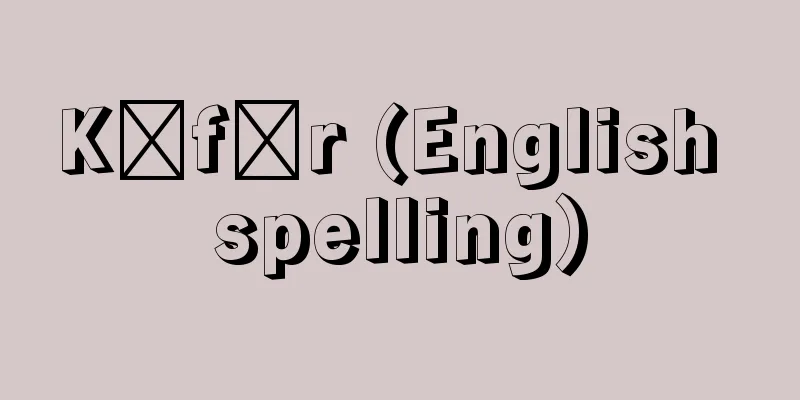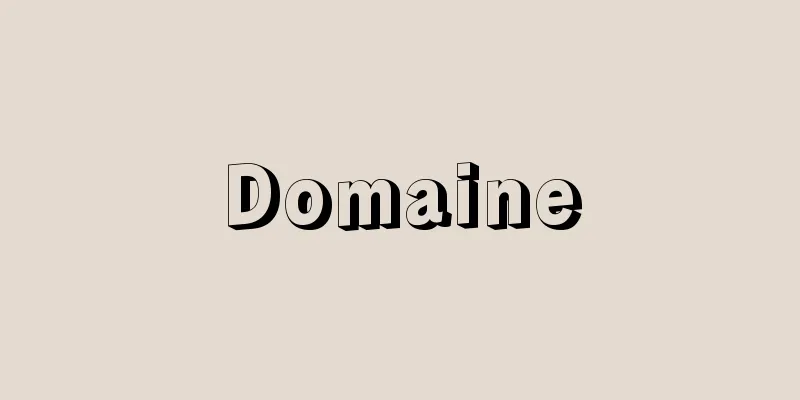Stresemann - Gustav Stresemann

|
German politician. Before World War I, he distinguished himself as an organizer of the Saxon Industrialists' Association, and became a member of the National Liberal Party in the Diet. During the war, he was known as one of the pro-war factions who supported large-scale territorial annexations. After the defeat, he led the mainstream of the National Liberal Party to found the German People's Party, became its leader, and served as a member of the Diet. He initially advocated the restoration of the monarchy, but eventually, based on the reality of the republic, he aimed for a national community that included the Social Democratic Party, with bourgeois forces at the core. In August 1923, he overcame the crisis of the Ruhr occupation and inflation as Prime Minister of the Weimar Republic. From then on, he served as Foreign Minister in successive cabinets until his death. Based on the recovery of Germany's economic power, he aimed to restore Germany to a strong nation and eliminate the Versailles system, and established a period of diplomacy known as the "Stresemann era" by stabilizing both domestic and international affairs, such as accepting the Dawes Plan to normalize the reparations issue, the Locarno Treaty in 1925, and Germany's admission to the League of Nations in 1926. In 1926 he received the Nobel Peace Prize together with French Foreign Minister Briand. [Kimura Seiji] [References] | | | | |Source: Shogakukan Encyclopedia Nipponica About Encyclopedia Nipponica Information | Legend |
|
ドイツの政治家。第一次世界大戦前、ザクセン工業家団体の組織者として頭角を現し、国民自由党国会議員となった。大戦中は大規模な領土併合を支持する主戦派の一人として知られた。敗戦後、国民自由党の主流派を率いてドイツ人民党を創設、党首となり国会議員として活動。当初帝政復帰を掲げたが、やがて共和制の現実にたって、ブルジョア勢力を主体にして、社会民主党を含めた国民共同体を志向するようになった。1923年8月、ルール占領、インフレの危機に際しワイマール共和国の首相として事態を乗り切った。以後死ぬまで歴代内閣の外相を務めた。彼は、ドイツの経済力の回復を基に、ドイツの強国への復帰、ベルサイユ体制の除去を目ざし、ドーズ案受け入れによる賠償問題の正常化、1925年のロカルノ条約、1926年ドイツの国際連盟加入など、内外の安定化を図って「シュトレーゼマン時代」といわれる外交上の一時期を築いた。1926年フランス外相ブリアンとともにノーベル平和賞を受けている。 [木村靖二] [参照項目] | | | | |出典 小学館 日本大百科全書(ニッポニカ)日本大百科全書(ニッポニカ)について 情報 | 凡例 |
<<: Stroheim - Erich von Stroheim
Recommend
Saddle Nose
[What kind of disease is it?] A saddle nose is whe...
Maxwell, James Clerk
Born: June 13, 1831, Edinburgh [Died] November 5, ...
motor-yacht (English spelling)
…Today's small diesel engines are lightweight...
Bryology
…While the living world is divided into two major...
Ceratitis capitata (English spelling)
...The oriental fruit fly (illustration) and melo...
North Intertropical Convergence Zone (NITZZ)
…At this time, convergence zones are formed betwe...
Heterogenous - Heterogenous
…Therefore, it is the fate of arthropods to have ...
Harumi Shibukawa
Year of death: 6th October 1715 (1st November 1715...
Peacock pigeon - Peacock pigeon
→Feral pigeon Source: Shogakukan Encyclopedia Nip...
Earthquake disaster - jishinsaigai
Also known as earthquake disaster. A general term ...
Pterygium
…In addition to these, trachoma was once a typica...
Gryphaea
…There are several ancient organisms that have lo...
Void
("Ko" is the Go-on pronunciation of &quo...
Tokyo Foreign Exchange Market
In a broad sense, the foreign exchange market refe...
Paratungstate - Paratungsten (English spelling)
One of the tungstates. Common name for dodecatungs...









